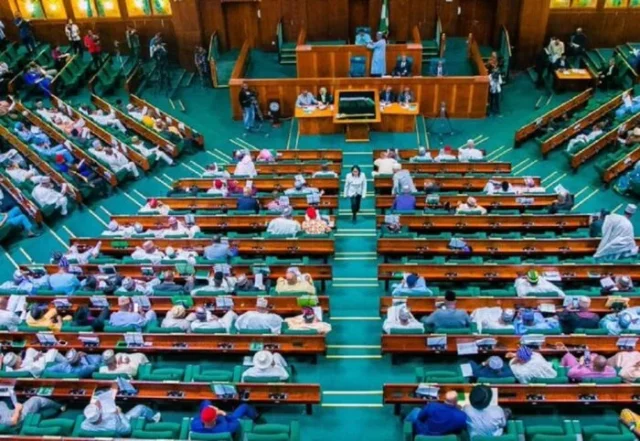
REPS MOVE TO RESOLVE PENGASSAN, DANGOTE REFINERY DISPUTE
On Tuesday, the House of Representatives made a decision to intervene in the recent conflict involving members of the Petroleum and Natural Gas Senior Staff Association of Nigeria (PENGASSAN) and the Dangote Refinery, which had disrupted the distribution of petroleum products across the nation.
This decision by the House came after the consideration and unanimous approval of a motion of urgent public significance, co-sponsored by lawmakers from Kano and Sokoto, Alhassan Doguwa and Abdussamad Dasuki, during the plenary session.
Entitled, “Need to Safeguard Private Investment from Antagonistic Unionism,” the legislators highlighted the importance of the Dangote Refinery, describing it as Africa’s largest privately-owned petroleum refinery.
The conflict between PENGASSAN and the Dangote Refinery triggered an industrial action that commenced on September 29, 2025, disrupting operations at the $20 billion facility.
Moreover, it caused a significant interruption in Nigeria’s crude oil production, with an estimated daily shortfall of around 200,000 barrels over a three-day period.
The upheaval exacerbated the petroleum supply crisis throughout the country, leading to shortages and prolonged queues at fuel stations in various states, inflicting considerable hardship on millions of Nigerians.
During the discussion on the motion, Doguwa, representing the Doguwa/Tudun Wada Federal Constituency in Kano State, emphasized the necessity of safeguarding the Dangote Refinery due to its strategic importance to the nation’s economy.
He remarked, “The House recognizes that the Dangote Refinery is a crucial private investment of substantial national relevance, possessing the capability to ensure energy security, diminish reliance on imports, stimulate job creation, and conserve foreign exchange.
“We acknowledge that the Dangote Refinery operates within a Free Trade Zone, thus falling under the regulatory purview of the Nigeria Export Processing Zones Authority, particularly Section 18(5) of the Nigeria Export Processing Zones Act, which unequivocally states that ‘Employment in the free zone shall be governed by rules and regulations established by the Authority and shall not be subject to the provisions of any enactments pertaining to employment matters. ’
“The House expresses concern that actions by labor unions that overlook the legal protections afforded to Free Zones under the NEPZA Act not only breach legal statutes but also foster a hostile investment climate that could deter future domestic and international investors;
“We are apprehensive that if strategically significant private investments continually face unlawful disruptions from antagonistic unionism, Nigeria risks not only the collapse of vital economic assets but also the deterioration of investor confidence essential for national growth and development. ”
In his remarks, Ahmad Jaha, representing the Chibok/Damboa/Gwoza Federal Constituency, urged the House to exercise caution, asserting that the call for an inquiry as proposed by the motion was ill-timed.
Subsequent to the motion’s adoption, the House called upon its leadership to mediate a resolution between the two parties for the benefit of the nation.
It additionally urged the Federal Ministries of Labour and Employment, Industry, Trade and Investment, along with Justice, to “Collaboratively formulate and execute a national framework or collection of policies to protect private investments of strategic national significance from hostile and unlawful union activities. ”
Moreover, it instructed the Federal Ministry of Justice and NEPZA to guarantee complete enforcement and adherence to the stipulations of Section 18(5) of the Nigeria Export Processing Zones Act in all pertinent Free Zone operations.
